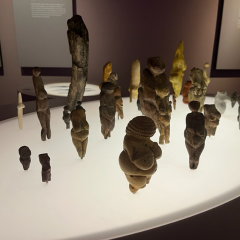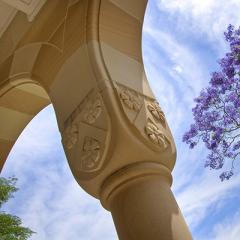Exploring Persepolis: Archaeological Research between Scholarship and World Politics
Abstract
The archaeological heritage of Iran has been in the focus of European travellers since the 17th century, and the deciphering of Babylonian cuneiform is based on the famous trilingual Bisotun inscriptions from the Western Zagros. Nevertheless, the exploration of the rich heritage of the country began somewhat belatedly and with a focus that differed remarkably from ongoing research in neighboring Mesopotamia. Blocked from international attention through the imposition of a monopoly granted to the French Mission by the Shah in the late 19th century and valid until 1928, foreign research interest sparked during the decade preceding World War II. At that time, the strategic location of the country between British and Russian interest spheres and the Shah’s active search for reform and allies created a sensible situation where archaeology took a special role in identity formation and alliance building. The talk will explore the entangled relations between world politics and archaeological research, with a special focus on Persepolis as the iconic site of the Persian identity discourse.
About the presenter
Barbara Helwing holds the Edwin Cuthbert Hall Chair in Middle Eastern Archaeology at the University of Sydney. She is specialized in the archaeology of Southwest Asia with a long-standing on-site experience in Iran, Turkey and Azerbaijan and has more recently shifted her attention to South Asia, with a new field project in Sri Lanka. Her research focuses on the functioning of ancient human societies in an interdisciplinary and diachronic perspective, looking at human – environment as well as human – technology interactions and the role of innovations therein. As a sideline, she is also interested in the history of archaeology in the countries of Southwest and South Asia within its historical and political context. Before coming to Australia in 2016, she taught Near Eastern Prehistory and Archaeology in Lyon, Tübingen, Berlin, Tehran and Ankara. From 2000 to 2014, she was Head of the German Archaeological Institute in Iran.
About Archaeology Working Papers
The Working Papers in Archaeology seminar series provides a forum for dissemination of archaeological research and ideas amongst UQ archaeology students and staff. All students are invited to attend the series and postgraduate students, from honours upwards, are invited to present their research. The aim is to provide opportunities for students, staff and those from outside UQ, to present and discuss their work in an informal environment. It is hoped that anyone interested in current archaeological directions, both within and outside the School and University, will be able to attend and contribute to the series.


